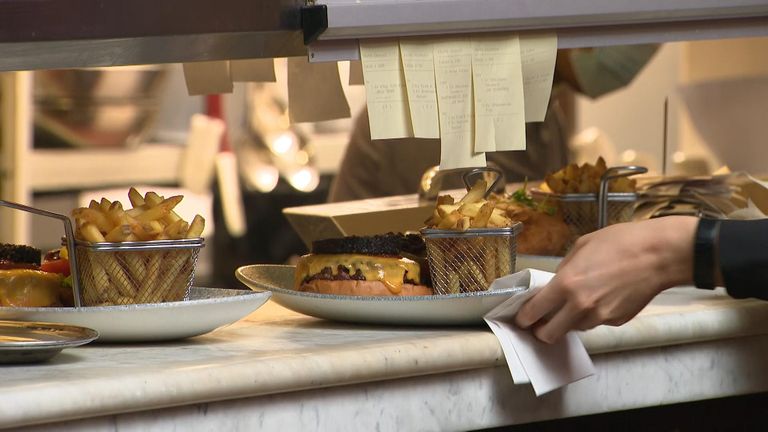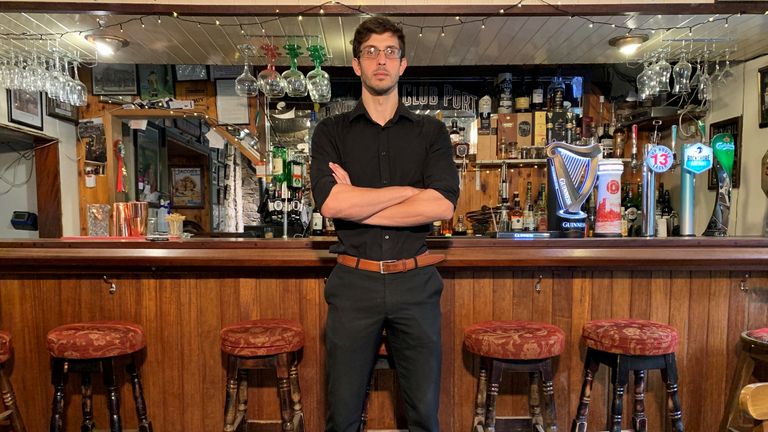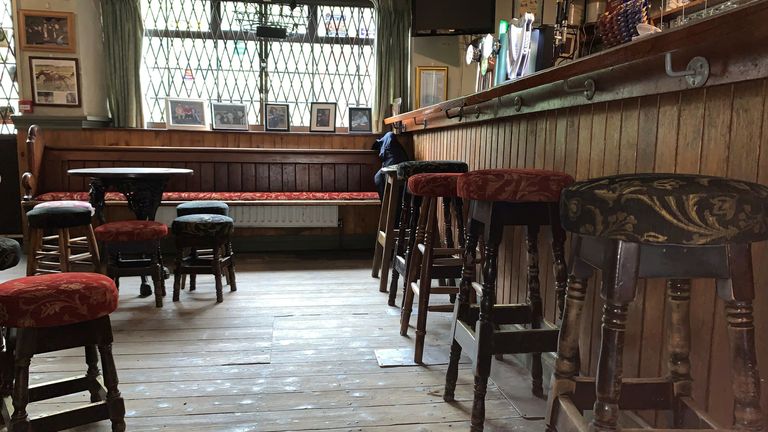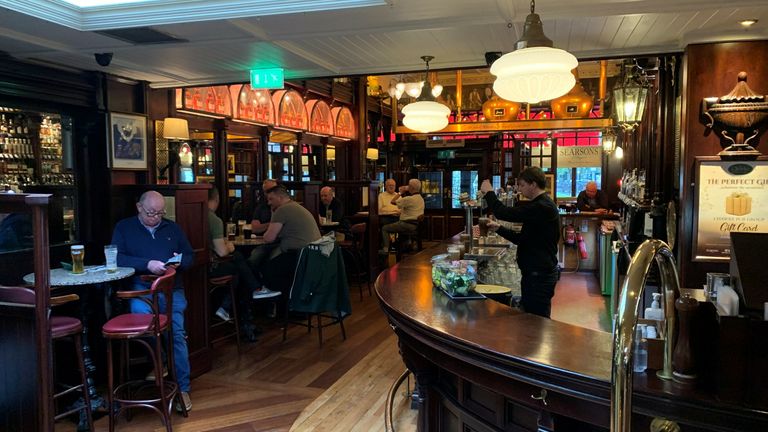Publicans are demanding the urgent reopening of bars across Ireland, which is now the only country in the EU imposing their closure for health reasons.
Ireland‘s pubs were shut in March, as coronavirus case numbers began to rise.
On 29 June, pubs that could serve a “substantial meal” valued at €9 (£8) were allowed to reopen, subject to strict conditions.
However, vintners estimate that 60% of pubs (which don’t serve food and are known as “wet pubs”) remain shut, with owners incurring increasing debt, and with thousands of job losses across the sector.
William Clynch is the owner of Moone High Cross Inn outside the village of Moone, in a rural part of Co Kildare. The pub has been closed for nearly six months, with an estimated loss of 70% of its annual turnover so far.
“It’s been extremely tough financially”, says Mr Clynch. “Our biggest expenditure would be insurance, as well as electricity as well and rates. We’ve had a bit of cash put aside for rainy days, but that is kind of running dry now at the minute.”
On the wall of the former coach house hangs a picture of one-time visitor Clint Eastwood with William’s father John, who ran the pub for decades.
“The COVID payment [from the Irish government] is keeping ourselves ticking over, our own personal bills,” Mr Clynch continued.
“Unfortunately my father, he’s a pensioner so he can’t draw it, so he’s just getting his pension, and that’s barely keeping him going. It’s pretty tough that way, yeah.”
Like many publicans, Mr Clynch says he can’t understand the logic of gastropubs and restaurants being permitted to open, while smaller and mostly rural pubs like his endure a costly shutdown.
Proponents of the current arrangements argue that without food, customers will consume more alcohol, and behave in a less inhibited, and therefore less safe, fashion. Shouting and singing, they contend, are far more likely to transmit droplets than conversation over food.
“I find that a little bit farcical to be honest”, says Mr Clynch. “What they’re really doing there is calling our customers irresponsible and pretty much saying as well that we can’t manage or control the crowd.”
It’s a viewpoint shared by many more fortunate colleagues.
Jason Gamble is the manager of Searsons, a well-known 1920s-style pub on Dublin’s usually bustling Baggot Street.
With a well-established food menu, the bar is open for business, subject to social distancing and time limits.
But Mr Gamble says his heart goes out to his colleagues running “wet” pubs.
He said: “I don’t think people having dinner and a drink is any different to people going into a wet pub and having a drink over the same period of time, with safe social distancing done. It should be able to work for those guys as well.”
Dr Gerald Barry, an assistant professor of virology at University College Dublin, also thinks the public health advice the Irish government is acting upon needs to be changed.
“If you think rationally about it”, says Dr Barry. “There’s really no difference if you’re having food or not. Really the only difference is that maybe the food will slow down the amount of alcohol going into your system and slow down the loss of inhibitions to an extent.
:: Subscribe to the Daily podcast on Apple Podcasts, Google Podcasts, Spotify, Spreaker
“If we can trust bars [that serve food] to open and to follow guidelines, then there’s no real reason why all bars shouldn’t be allowed to open.”
The Irish government feels differently – at least for now. It’s expected to unveil a new roadmap in the coming week that will include a plan to reopen all of the country’s pubs.
In the interim, it announced a €16m (£14.2m) grants package for pubs. It was promptly described by one industry group as “a slap in the face”, and by another as “woefully inadequate”.





